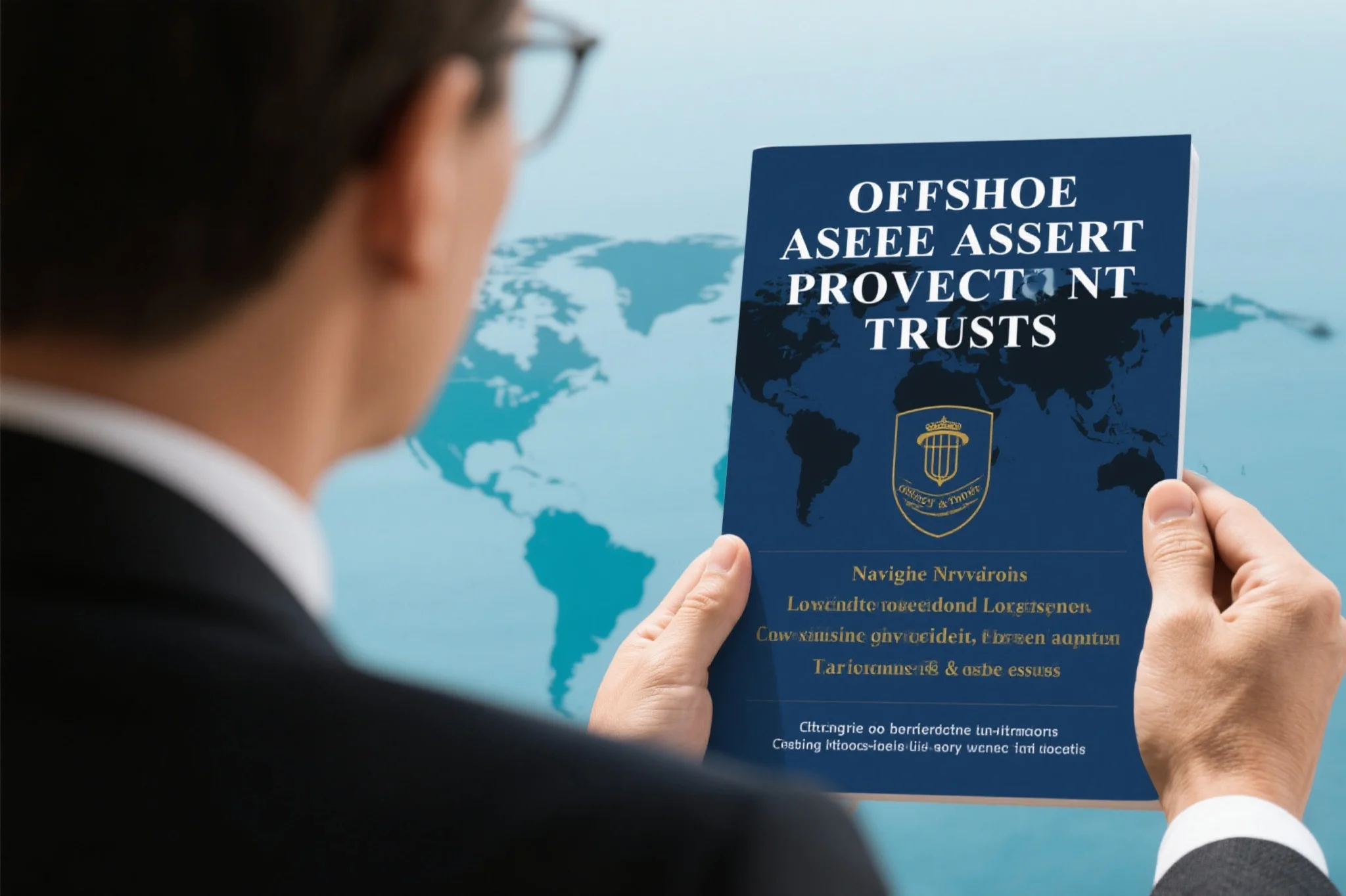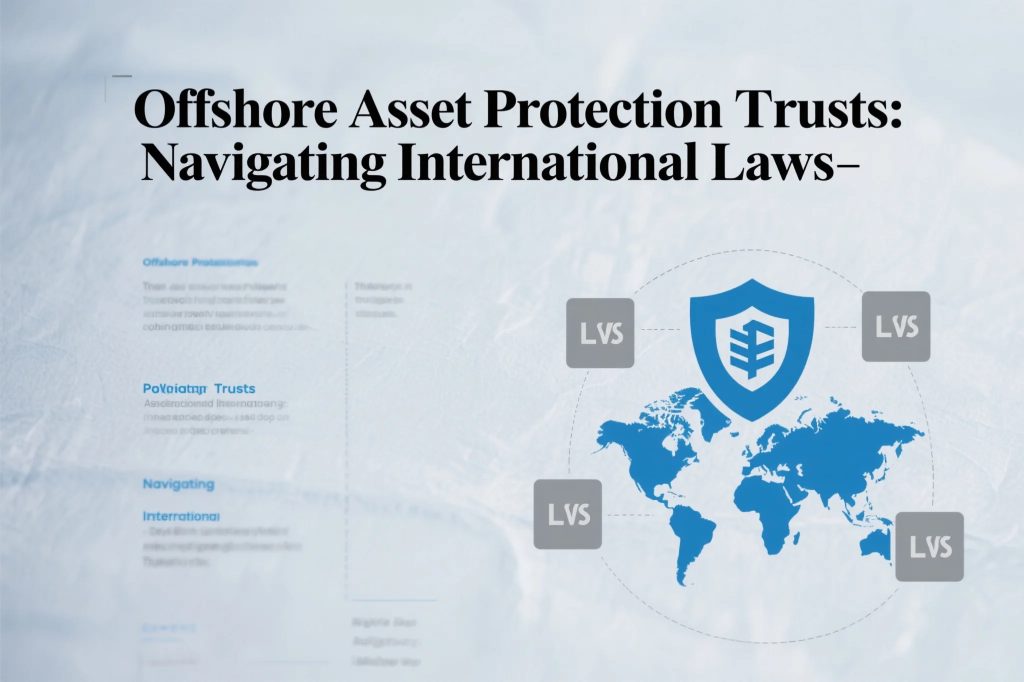
understanding offshore asset protection trusts
For high-net-worth individuals seeking to safeguard their wealth from potential creditors, lawsuits, or political instability, offshore trusts have emerged as a sophisticated solution in international estate planning. These legal structures, when properly established in favorable jurisdictions, create formidable barriers against those who might seek to challenge or claim portions of your estate. The fundamental principle behind an asset protection trust lies in the transfer of legal ownership of assets to a trustee in a foreign jurisdiction while retaining beneficial enjoyment of those assets.
The complexity of these arrangements requires careful navigation of multiple legal systems. Unlike domestic trusts which remain subject to local court rulings, properly structured offshore trusts benefit from foreign laws that often don’t recognize U.S. or other domestic judgments. This jurisdictional arbitrage forms the bedrock of their protective qualities. However, it’s crucial to understand that these instruments must be established well before any claims arise – courts routinely invalidate trusts created with actual intent to defraud existing creditors.
selecting the ideal jurisdiction for wealth preservation
Choosing where to establish your offshore trust represents one of the most critical decisions in the wealth preservation process. Not all international financial centers offer equal protection, and the regulatory environment varies dramatically between jurisdictions. Traditional havens like the Cook Islands, Nevis, and Belize have developed specialized trust laws specifically designed for asset protection, featuring short statutes of limitations for challenging transfers and high burdens of proof for creditors.
More recently, jurisdictions such as Gibraltar and Cyprus have entered the international estate planning arena with modernized trust legislation that combines robust protections with greater transparency. The optimal jurisdiction balances strong legal safeguards with political stability, professional infrastructure, and in some cases, tax neutrality. Sophisticated planners often recommend jurisdictions that have no tax treaties with your home country to prevent information exchange that could undermine confidentiality.
structural considerations in trust formation
Designing an effective offshore trust requires more than just selecting a jurisdiction. The trust deed must be meticulously drafted to achieve both asset protection objectives and your broader wealth preservation goals. Most protective trusts are structured as discretionary trusts, where the trustee has absolute discretion over distributions. This design prevents creditors from claiming any specific entitlement to trust assets.
A properly structured trust will typically include a trust protector – an independent professional who oversees the trustee and has power to amend trust terms or change trustees if necessary. For U.S. persons, special attention must be paid to avoid creating a “foreign grantor trust” that could trigger adverse tax consequences. The inclusion of spendthrift clauses and anti-duress provisions further fortifies the structure against legal challenges.

funding strategies for maximum protection
The assets you choose to place within your offshore trust significantly impact both the level of protection and practical utility of the structure. Liquid assets like cash, securities, and intellectual property rights are simplest to transfer and manage. Real estate and operating business interests present more complex challenges but can often be accommodated through specialized holding structures.
A key principle in wealth preservation through offshore structures is the segregation of assets. Rather than placing all wealth into a single trust, many high-net-worth individuals create multiple trusts holding different asset classes across several jurisdictions. This layered approach makes it exponentially more difficult for claimants to access the entire fortune. The timing of transfers also warrants careful consideration – assets transferred well in advance of any potential claims receive far greater protection than those moved when litigation appears imminent.
navigating international legal complexities
The intersection of multiple legal systems creates both opportunities and challenges in international estate planning. While foreign courts may not recognize domestic judgments, they do maintain their own standards for fraudulent transfer claims. Understanding the conflict of laws principles that govern which jurisdiction’s laws apply to particular aspects of the trust is essential for durable asset protection.
Recent developments in international cooperation, such as the Hague Trust Convention and various tax information exchange agreements, have increased transparency in some jurisdictions. However, many premier offshore trust destinations have carefully crafted their laws to maintain client confidentiality while complying with legitimate international requests. Working with counsel experienced in cross-border insolvency matters can help navigate these evolving standards while maintaining robust protections.
tax implications and compliance requirements
While offshore trusts offer powerful wealth preservation benefits, they don’t eliminate tax obligations in your home country. U.S. persons, for example, must report foreign trusts and may face complex filing requirements under FATCA and other regimes. Proper structuring can optimize tax outcomes, but outright evasion should never be the goal of international estate planning.
Many jurisdictions favored for asset protection trusts impose no local taxes on trust income or capital gains, creating opportunities for tax deferral when combined with proper structuring. However, distributions to beneficiaries typically carry tax consequences. The use of foreign corporations as trust beneficiaries, when permitted, can provide additional flexibility in managing tax liabilities across generations.
maintaining control without compromising protection
A common concern among individuals establishing offshore trusts is the perceived loss of control over their assets. Modern wealth preservation techniques have developed numerous solutions to this challenge while maintaining robust legal protections. Letter of wishes documents, while not legally binding, provide trustees with clear guidance on your intentions for asset management and distributions.
For business owners, specialized trust provisions can allow you to continue directing company operations as a “protector” or “investment advisor” to the trust without negating the asset protection benefits. These arrangements require precise drafting to avoid creating what courts might view as a sham trust. The retention of certain limited powers, such as the ability to replace trustees or modify administrative provisions, can provide comfort without undermining the structure’s defensive qualities.
addressing common misconceptions and pitfalls
The world of offshore trusts suffers from numerous misconceptions that can lead to costly mistakes in international estate planning. Contrary to popular belief, these structures aren’t exclusively for the ultra-wealthy – middle-market solutions exist for professionals facing high litigation risks. Another common fallacy is that asset protection trusts are “illegal” or “shady,” when in reality they’re recognized legal instruments when properly established for legitimate purposes.
Perhaps the most dangerous misconception is that any offshore jurisdiction will suffice for wealth preservation. Jurisdictions without specialized trust laws or those that automatically enforce foreign judgments provide little actual protection. Similarly, using unqualified local providers or cookie-cutter documents often results in structures that collapse under legal scrutiny. Proper implementation requires customized solutions tailored to your specific assets, risk profile, and family circumstances.
the future of offshore asset protection
As global transparency initiatives expand, the landscape for offshore trusts continues evolving. However, the fundamental demand for wealth preservation solutions ensures these structures will adapt rather than disappear. Emerging trends include the growth of “hybrid” jurisdictions that offer strong protections while meeting international compliance standards, and the increasing use of blockchain technology for asset tracking within trust structures.
Sophisticated international estate planning now often combines asset protection trusts with other tools like private placement life insurance and family investment companies for comprehensive coverage. As geopolitical risks increase, we’re seeing growing interest in jurisdictions perceived as politically neutral. Regardless of these developments, the core principles of advance planning, proper structuring, and professional implementation remain timeless for those seeking to protect their legacies across borders.